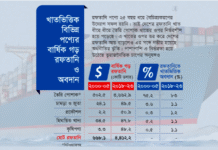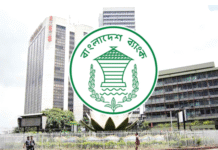DCCI conference stresses efforts from all sectors
Bangladesh should go for an integrated branding policy, instead of taking piecemeal steps, as the country is at the crossroads towards higher growth trajectory.
The call came at the conclusion of a two-day international conference on Positioning Bangladesh: Branding for Business at Sonargaon Hotel in Dhaka yesterday.
“Brand is not just a logo. There must be concerted efforts from public and private sectors to articulate a proper branding strategy,” according to the recommendations of the conference.
Bangladesh should mitigate the consequences and try to adapt to the new scenario arising out of climate change, to brand itself to the world.
More than 30 such recommendations came up from seven working sessions of the conference, organised by Dhaka Chamber of Commerce of Industry, in association with BUILD, Katalyst and BASIS.
Business Initiatives Leading Development (BUILD) works as the government’s key strategic partner in private sector development, while Katalyst is a market development project. Bangladesh Association of Software and Information Services (BASIS) is the national trade body for software and IT-enabled services.
Asif Ibrahim, the outgoing president of the Dhaka Chamber, said Bangladesh is now at a crossroads and the outcomes of the event will help the country change its perception and reposition itself in the world.
Ferdous Ara Begum, chief executive officer of BUILD, Tanjil Chowdhury, vice-chairman of Prime Bank, Sabur A Khan, the newly elected president of the DCCI, and Farida Husain, communications director of Katalyst, also spoke.
“The country should fully exploit the young, dynamic, hard-working and entrepreneurial labour force, which is seen as the biggest resource to take the economy to the desired destination,” according to a recommendation of the event.
Investment in branding the nation must be long-term and the effect must be lasting throughout numerous channels.
“The brand must be built on this premise engaging the government, businesses and individuals to gain further credibility,” according to the conference outcomes.
The development of a fully integrated branding strategy can also help position Bangladesh as a destination for ICT investment and outsourcing, and attract foreign direct investment.
Bangladesh should review the wages annually, take proper safety measures, generate efficient mid-level management, become more dependent on domestic management experts and improve infrastructure to attract more investment.
“There is a dire need to implement the multimodal transport policy to improve the transport facilities and reduce the cost of business.”
As per the suggestions, cost of energy should be kept lower to sustain competitiveness.
The ICT sector can be considered a thrust sector due to its rapid expansion and growing contribution to the economy.
“Bangladesh should focus on IT and IT-enabled services. Policies should be auspicious to encourage this competitive sector,” according to the recommendations. Tariff policies should gradually be liberalised to bring the private sector-led economic growth into a reality.
“There should be exclusive interaction and coordination between Bangladesh Tariff Commission and the National Board of Revenue prior to finalising the annual national budget.”
Policymakers should give special attention to counter-productive policies. The mismatch between macro and micro policies exists all over the world. However, the mismatch should be within an acceptable limit, the recommendations said.
“In order to get the desired benefits of macro and micro policies, coherent and consistent policies should be devised and enacted in an orderly fashion.”
Crop insurance should be introduced to save farmers in grey days, according to the recommendations of the conference.
Source: The Daily Star










